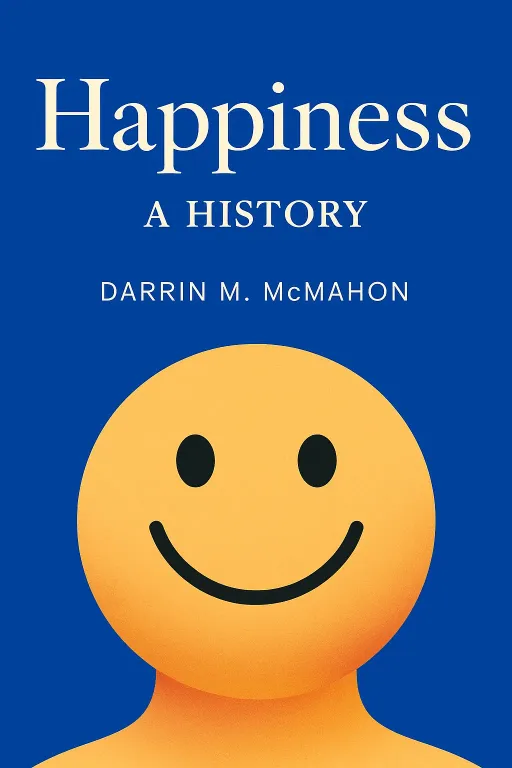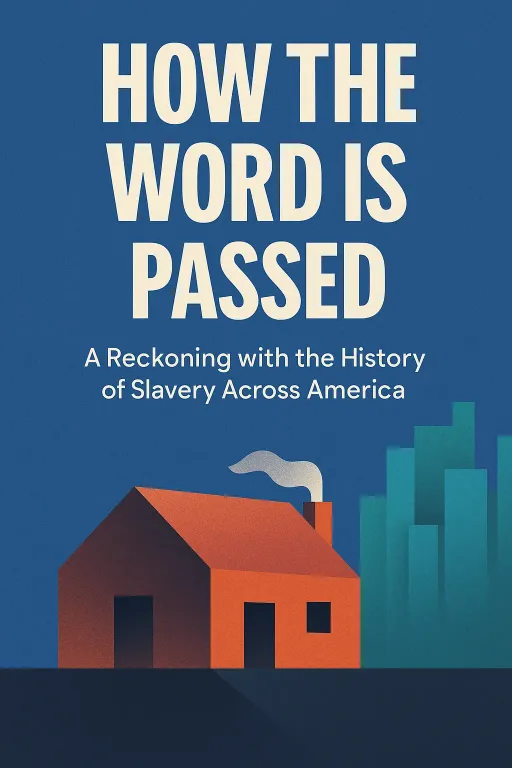
Happiness
10 minA History
Introduction
Narrator: Imagine you are King Croesus of Lydia, the wealthiest man in the ancient world. Your power is absolute, your treasures legendary. You summon the wise Athenian, Solon, and ask him a simple question, fully expecting to hear your own name in response: "Who is the happiest man in the world?" Solon, however, does not name you. Instead, he speaks of Tellus, an ordinary Athenian who lived a good life, raised a fine family, and died gloriously in battle. He then tells of two brothers, Cleobis and Biton, who were rewarded with a peaceful death after an act of supreme piety. Confused and angered, you dismiss the old man. Only later, as your kingdom crumbles and you face death on a pyre, do you understand his warning: "Count no man happy until he is dead."
This ancient story, with its stark and unfamiliar view of happiness, lies at the heart of Darrin M. McMahon's book, Happiness: A History. McMahon embarks on a sweeping two-thousand-year journey to reveal a startling truth: our modern belief that happiness is a natural right, an achievable state of personal feeling, is not a timeless human universal. It is a radical, recent, and revolutionary invention, one that has profoundly reshaped Western civilization and, in many ways, created its own unique forms of discontent.
The Tragic Gift of the Gods
Key Insight 1
Narrator: In the ancient Greek world, happiness was not something one pursued; it was something one endured life to receive. The concept was entirely external, a judgment passed on a life, not a feeling experienced within it. The Greeks used words like olbios and makarios to describe a state of being blessed by the gods, a life marked by prosperity and freedom from suffering. But this state was precarious, a gift that could be snatched away at any moment by jealous and unpredictable deities.
The story of King Croesus perfectly illustrates this tragic vision. He believed his immense wealth and power made him happy, a subjective feeling he held with certainty. Solon’s wisdom revealed the flaw in this thinking. True happiness, or eudaimonia, was not a feeling but a characterization of an entire life, something that could only be assessed at its conclusion. It depended on fortune, on having a good daimon or guiding spirit, and on the whims of the gods. Life was a cruel and unpredictable game of chance, and only at death, when one’s fortune could no longer turn, could a final verdict be rendered. This is why Solon named dead men as the happiest; their good fortune was sealed, safe from the tragic reversals of fate. This ancient perspective stands in stark contrast to our modern assumption that we are the architects of our own joy.
The Philosophical Project of Self-Control
Key Insight 2
Narrator: The first major shift in this fatalistic worldview occurred in 5th-century BCE Athens, where the rise of democracy fostered a new sense of human agency. If men could govern their city through reason and deliberation, perhaps they could also govern their own souls. It was Socrates who first transformed the quest for happiness from an act of hubris into the highest form of philosophical inquiry. He argued that all people naturally desire happiness, but he redefined it. It was not mere pleasure or good fortune, but a higher state achieved through the proper ordering of the soul, through reason, self-control, and virtue.
His student, Plato, explored this idea in the Symposium, depicting the ascent to happiness as an education of desire, moving from the love of physical beauty to the contemplation of beauty itself. Aristotle later brought this philosophical project down to earth. In his Nicomachean Ethics, he defined happiness as an "activity of the soul expressing virtue." While he acknowledged that external goods like wealth and friends were necessary, he placed the power to achieve happiness firmly within human grasp through lifelong practice and habituation. However, even for Aristotle, the highest form of happiness—pure contemplation—was a godlike state, almost beyond human reach. This classical ideal established a powerful new precedent: happiness was no longer just a matter of luck, but a goal that could be rationally pursued.
The Heavenly Promise of Christian Faith
Key Insight 3
Narrator: With the rise of Christianity, the focus of happiness shifted dramatically once again. The classical world’s earthly goal was largely abandoned for a heavenly one. Thinkers like Saint Augustine argued that true and perfect happiness was impossible in a fallen world, a "thoroughfare of woe." Earthly life was a pilgrimage, a test of faith and endurance whose ultimate reward was not here, but in the afterlife. The goal was not to be happy, but to live in such a way as to become worthy of eternal happiness in the presence of God.
This perspective dominated the medieval world. While ordinary people still found moments of joy in festivals and folklore, the official theological doctrine was clear: ultimate fulfillment was deferred. Thomas Aquinas, in the 13th century, synthesized this Christian view with Aristotelian philosophy. He proposed a distinction between the "imperfect happiness" attainable on earth through reason and virtue, and the "perfect happiness" of the beatific vision, which was only possible in heaven through divine grace. For over a millennium, happiness was understood primarily as a spiritual promise, a solace for earthly suffering rather than a goal for earthly life.
The Enlightenment's Earthly Revolution
Key Insight 4
Narrator: The most dramatic revolution in the history of happiness occurred during the Enlightenment. Thinkers of the seventeenth and eighteenth centuries brought happiness down from heaven and placed it firmly on earth. John Locke argued that the pursuit of happiness was the foundation of all human liberty, a natural impulse given by God. This idea was radical: happiness was not a reward for a virtuous few or a promise for the next life, but a natural endowment and an attainable goal for every human being in this life.
This new faith in earthly happiness was consecrated in the great political documents of the age. Thomas Jefferson enshrined the "pursuit of happiness" as a self-evident, unalienable right in the American Declaration of Independence. The French Declaration of the Rights of Man and of the Citizen aimed to secure the "happiness of all." For the first time in history, happiness became not just a personal aspiration but a political mandate. The expectation was no longer to endure suffering patiently but to overcome it. This shift created the modern world’s central assumption: that we can and should be happy, and that it is a failure on our part if we are not.
The Modern Commandment and Its Discontents
Key Insight 5
Narrator: The Enlightenment’s promise, however, came with a dark side. The very pursuit of happiness became a source of new anxieties. As Alexis de Tocqueville observed in America, a people with so much freedom and prosperity seemed haunted by a "strange melancholy," constantly striving for a contentment that remained just out of reach. The modern world did not just grant a right to pursue happiness; it issued a command to be happy.
This pressure has been a central theme for modern critics. Sigmund Freud argued that the program of becoming happy is doomed from the start, caught in an impossible conflict between our innate "pleasure principle" and the constraints of the "reality principle." He believed civilization itself requires the suppression of our desires, making a certain level of discontent the price we pay for social order. The goal of his psychoanalysis was not to make people happy, but to transform "hysterical misery into common unhappiness." Aldous Huxley’s dystopian novel Brave New World offered a chilling vision of where this pursuit could lead: a society engineered for maximum pleasure, where citizens are pacified by drugs and consumption, but have sacrificed art, truth, and their very humanity. This has led to what McMahon calls the "unhappiness of not being happy"—a uniquely modern burden where our failure to feel good becomes another reason to feel bad.
Conclusion
Narrator: The single most important takeaway from Happiness: A History is that our contemporary understanding of happiness as an innate right and a project of self-fulfillment is a historical anomaly, not a human constant. For most of history, happiness was seen as a rare gift of fate, a reward for virtue, or a promise for the afterlife. The Enlightenment's revolution, while empowering, also saddled us with the immense pressure of achieving a state that is, by its very nature, elusive.
McMahon’s work challenges us to look critically at our own frantic pursuit of joy. By understanding that our definition of happiness is not the only one, we can begin to question whether the modern commandment to feel good at all times is actually a healthy or realistic goal. Perhaps, as the ancients knew, a meaningful life is not one devoid of pain, but one that finds purpose and dignity in navigating the inevitable struggles of the human condition. The ultimate question the book leaves us with is not how to be happy, but what kind of happiness is truly worth pursuing.









